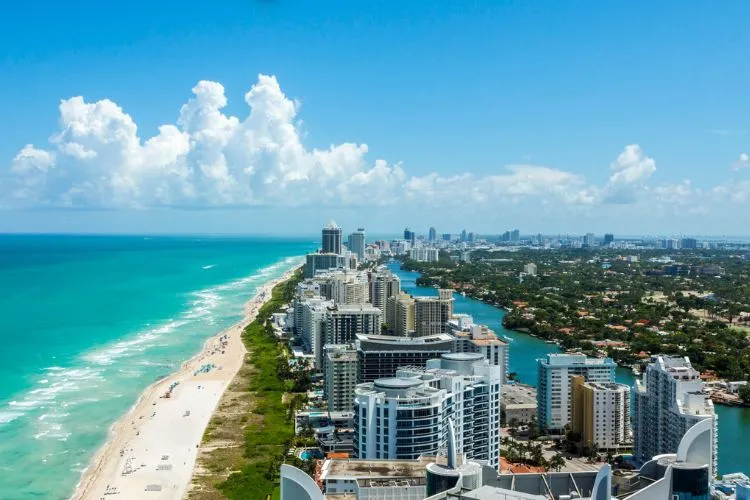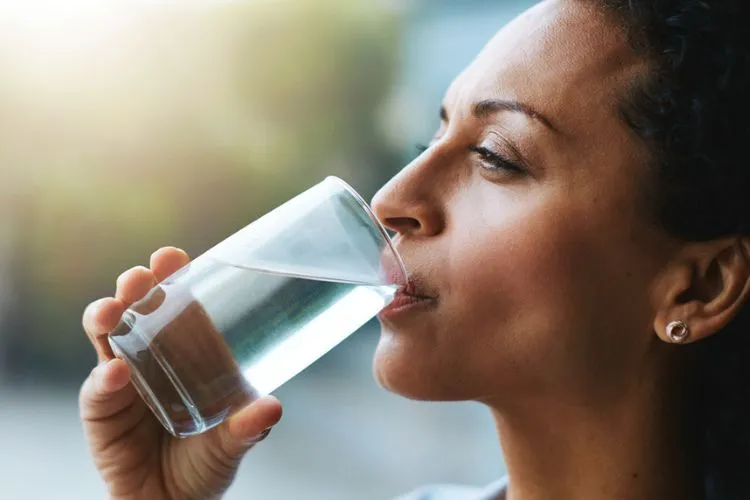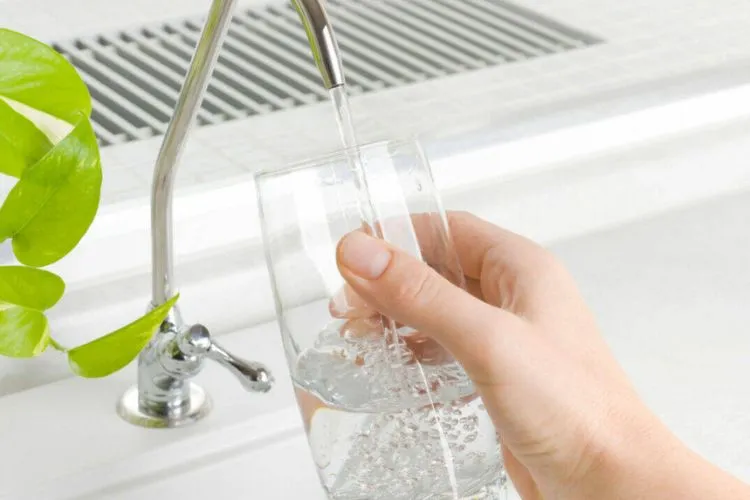Water hardness is a common concern for many residents in urban areas, affecting everything from household chores to the longevity of plumbing systems.
Miami, a vibrant city known for its stunning beaches and dynamic culture, is no exception. This article delves into the specifics of water hardness in Miami.
So, does Miami have hard water as well?
This article provides valuable insights for Miami homeowners, renters, and anyone interested in the quality of their water.

💦 Understanding Water Hardness
Water hardness refers to the concentration of certain minerals, primarily calcium and magnesium, dissolved in water. When these mineral levels are high, water is considered “hard.”
This can have various effects on daily life, impacting everything from the effectiveness of soap to the condition of plumbing and appliances.
💦 Does Miami Have Hard Water?
The geological characteristics of the Miami area play a significant role in determining the hardness of the water.
The city’s primary water source, the Biscayne Aquifer, is known for its relatively high mineral content, which can contribute to harder water.
Hard water is measured in parts per million (ppm) or grains per gallon (GPG), with levels above 7 GPG generally considered to be hard.
💦 Geographical Impact on Water Hardness
Miami’s location and geological features significantly influence the mineral composition of its water. The Biscayne Aquifer, comprised of permeable limestone, acts as a natural filter that affects the hardness of the water it supplies.
💦 Measurements and Standards
Water hardness levels are categorized from soft to very hard. Soft water falls below 17 ppm, while very hard water exceeds 180 ppm.
Miami’s water hardness levels have been measured in various studies, often showing it to rest within the moderately hard to hard range. This compares to the national average in the U.S., which varies widely across the country.
💦 Current Water Hardness Levels in Miami
Current measurements indicate that Miami’s water hardness can vary but often leans towards the hard side of the scale.
These levels highlight the need for residents to understand and, if necessary, treat their water to avoid the challenges associated with hard water.

💦 Effects of Miami’s Water Hardness
On Household Appliances
One of the most tangible impacts of hard water is its effect on household appliances. Minerals can build up over time, leading to inefficiency and even damage. Devices that heat water, like coffee makers and boilers, are particularly vulnerable.
On Personal Health
Though not generally harmful to health, the minerals in hard water can dry out skin and hair. Some residents may notice a difference after moving to or visiting Miami, though these effects are more a matter of comfort than health.
On Plumbing Systems
Plumbing systems can suffer from hard water as mineral deposits narrow pipes and reduce water flow. Over time, this buildup, known as scale, can lead to increased maintenance costs and the need for repairs.
💦 Addressing Hard Water in Miami
Water Softening Solutions
To mitigate the effects of hard water, many opt for water softening solutions. These systems, such as ion exchange softeners, remove minerals from the water, preventing scale and improving the efficiency of soap and detergents.
Professional Water Treatment Services
Miami boasts several professional water treatment services that can test water hardness and recommend solutions. It’s wise for homeowners to consider their household’s specific needs when choosing among these services.
💦 Pro Tips
Recognizing signs of hard water, such as spots on dishes or reduced soap lather, is the first step in addressing the issue.
DIY methods, such as cleaning with vinegar, can mitigate some effects, but for many, a water softening system may be the best solution.
Regular testing helps monitor water hardness levels and the effectiveness of any treatment systems in place.

💦 Case Studies: Local Solutions to Hard Water
In Miami, both residents and businesses face the challenge of managing hard water.
One notable example involves a local cafe that struggled with scale buildup in its espresso machines, significantly affecting the taste of its coffee and the longevity of its expensive equipment.
By installing a commercial-grade ion exchange water softening system, the cafe not only extended the life of its machines but also improved the quality of its coffee, receiving positive feedback from customers.
This solution highlights the importance of targeted water treatment in businesses where water quality directly impacts product quality.
💦 Frequently Asked Questions (FAQs)
How can I find out the hardness of my water in Miami?
You can request a water quality report from your local water provider, purchase a home testing kit, or hire a professional service for a detailed analysis.
Are there any health risks associated with hard water?
Generally, hard water poses no significant health risks. The minerals in hard water can actually contribute to dietary needs. However, the impact on skin and hair, while not harmful, can be a nuisance for some individuals.
What are the easiest ways to treat hard hard water at home?
Installing a water softening system is one of the most effective solutions. For a more immediate, though temporary, fix, using vinegar can help remove mineral buildup on fixtures.
Can hard water affect my energy bills?
Yes, appliances operate less efficiently with hard water, potentially leading to higher energy bills over time due to increased heating requirements and operational inefficiencies.
How often should I test my water for hardness in Miami?
Testing at least once a year can help you monitor changes and determine if your water treatment system requires maintenance or replacement.
Is there a taste difference between hard and soft water?
Some people may notice a slight difference in taste. Hard water can have a more mineral-heavy taste, while soft water tends to taste slightly saltier due to the sodium used in many softening processes.
Do water filters also soften hard water?
Not all water filters are designed to soften water. While they may remove contaminants, specialized softening filters or systems are often needed to reduce hardness significantly.
Conclusion:
While Miami’s water hardness levels may pose challenges for residents, understanding and proactively managing water quality can mitigate most issues.
Whether through home treatments or professional services, solutions are available to ensure that the water in Miami homes remains a source of health and comfort.

Devon Shorts, a seasoned expert with over a decade of experience in water safety, shares valuable insights on this blog “Aqua Safety Plus”. Trust his expertise to keep your water clean and your family safe.
